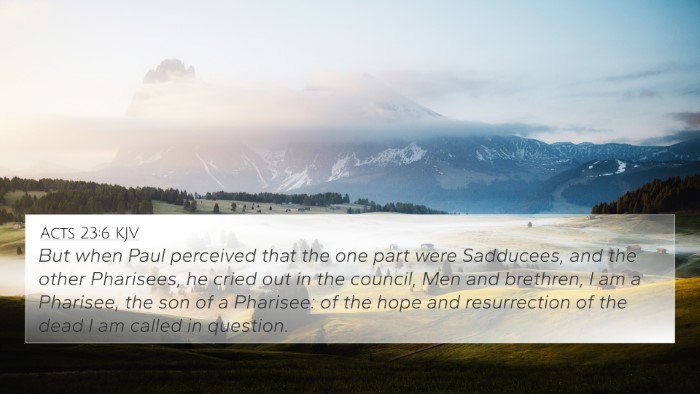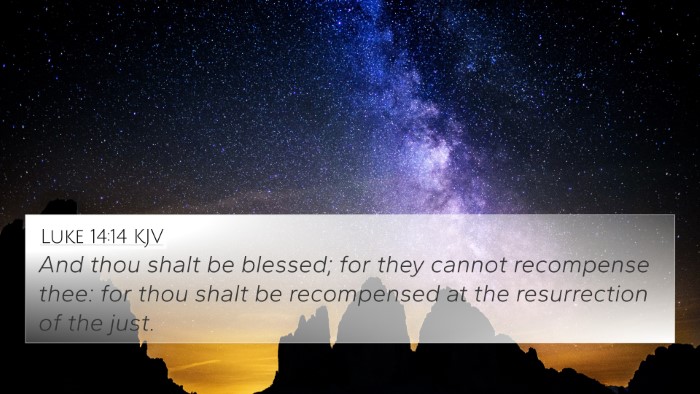Understanding Philippians 3:11
Bible Verse: Philippians 3:11 - "If by any means I might attain unto the resurrection of the dead."
Contextual Overview: Philippians 3:11 is situated within the Apostle Paul's discussion about the surpassing value of knowing Christ and striving for the ultimate goal of resurrection. This statement encapsulates a profound theological aspiration towards eternal life and highlights the centrality of Christ in the believer's journey.
Commentary Insights
Matthew Henry's Commentary
Matthew Henry emphasizes that the resurrection of the dead is not merely a doctrinal assertion but a pivotal hope for believers. He points out that Paul, despite his accomplishments, still longs for this resurrection, underlining the necessity of humility in spiritual pursuits. Henry stresses that the longing for resurrection unites believers in their shared goal of eternal life, suggesting it should lead to a life that reflects Christ's character.
Albert Barnes' Commentary
Albert Barnes elaborates on the notion of attaining resurrection as a result of faith and perseverance. He interprets Paul's statement as an acknowledgment of personal effort and divine grace in striving to attain spiritual objectives. Barnes makes a connection to the broader biblical theme of resurrection, linking it to other scriptures that discuss the hope of life after death, including 1 Corinthians 15:20-22 and John 5:28-29.
Adam Clarke's Commentary
Adam Clarke notes that Paul expresses this desire for resurrection in a context of self-examination and humility. He highlights the importance of being found in Christ, as the means through which believers can hope for resurrection. Clarke further emphasizes the link between suffering and glory, basing his understanding on Romans 8:17, where present sufferings are contrasted with future glory.
Theological Implications
The verse serves as a reminder of the ultimate goal for Christians: to attain the resurrection associated with Jesus Christ. Both Henry and Clarke emphasize a personal relationship with Christ as foundational to this aspiration, while Barnes underscores the importance of faithful living and striving toward that goal.
Cross-References
- 1 Corinthians 15:20-22 - The resurrection of Christ as the firstfruits of those who have fallen asleep.
- Romans 8:11 - The Spirit’s role in raising us from the dead, paralleling the resurrection theme.
- John 5:28-29 - The certainty of a resurrection for all, a direct connection to future hope.
- 2 Timothy 2:11-12 - The notion of enduring with Christ to live with Him, resonating with Paul's aspiration.
- Romans 6:4 - Being raised from the dead through the glory of the Father, a foundational belief.
- Ephesians 1:19-20 - A reminder of the power that raised Christ from the dead and its work in believers.
- Philippians 3:20-21 - Encouragement to await our Savior from heaven who will transform our bodies.
Connections to Other Biblical Texts
Philippians 3:11 speaks to the eschatological hope found throughout Scripture. This can be explored through the following connections:
- Genesis 22:5 - A foundational narrative about resurrection hope foreshadowed in Abraham's faith.
- Isaiah 26:19 - A prophetic voice that speaks of the resurrection of the dead, echoing the theme found in Philippians.
- Job 19:25-26 - Job's declaration of hope in his Redeemer, pointing to a future resurrection.
Conclusion
In summary, Philippians 3:11 encapsulates the Christian hope in the resurrection, framed within the context of perseverance in faith and the pursuit of Christ. The insights gathered from Matthew Henry, Albert Barnes, and Adam Clarke collectively emphasize the theological, personal, and communal implications of this profound declaration. As believers continue to explore cross-references and connections between Bible verses, they find richer understanding of their faith.
Resources for Further Study
- Bible concordance for deeper thematic studies.
- Tools for Bible cross-referencing to enhance understanding.
- Bible reference resources focused on Pauline epistles for comparative studies.

















